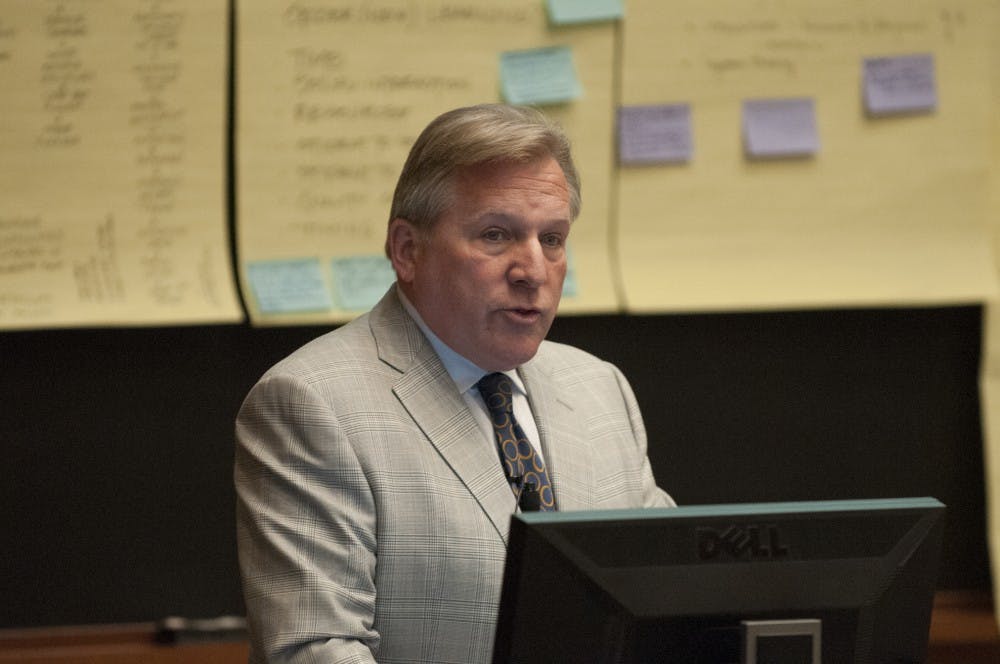University faculty gathered in Nau Hall Friday to discuss the future of science, technology, engineering and mathematics at the University in a collaborative presentation entitled “What’s Ahead for STEM at U.Va.”
The presentation was organized in response to a series of strategic planning initiatives set forth by the Board of Visitors to improve STEM research and instruction at the University. Included among those initiatives was the need to renovate many of the University’s older science buildings in anticipation of increased research, enrollment and student interest in STEM fields.
These factors — particularly enrollment growth — make the renovation of Gilmer Hall and the Chemistry Building both logical and fiscally responsible, according to a study conducted by the College three years ago as part of its capital planning process.
“Emerging technologies will require faculty to reimagine the [physical] spaces in which those exist,” said Jeanne Narum, a discussion moderator and nationally-renowned expert on planning undergraduate learning spaces. “There’s kind of a greater sense of urgency now, and we do have to get it right.”
Faculty in attendance expanded on these discussions of physical laboratory and classroom spaces and the metaphorical spaces in which meaningful learning takes place. They also examined questions about how to facilitate student exposure to “big data,” obtain resources for faculty and teaching assistant training, and expose students to a diversity of thought.
“One thing I was struck with just by going to the workshop was the interplay with space and how people learn,” said Biology Prof. Laura Galloway, chair of the Biology department. “I think about how what we can do with biology is dictated by the facilities that we have. There are some things we do very well… and there are some things we could do better on.”
Psychology Prof. David Hill, chair of the Psychology department called the discussion a “breath of fresh air” after seeing that the current methods of teaching STEM curriculum cause many students to become disengaged.
“You get a person up there [in class] showing slides and teaching facts, and I’m worried about students thinking ‘What facts do I have to know?’ [or] ‘What do I have to memorize for the test?’” Hill said. “And we’re losing them. You can not only have them learn the facts, but put it into a process to get them excited about the process of discovery.”







